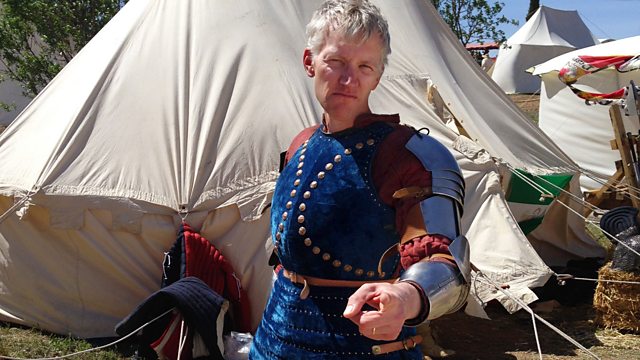26/04/2011
Fiona Watson presents the popular history programme. How a British working-class movement helped shape the electoral system of Australia, and the first media royal.
Fiona Watson and the team explore recent historical research and follow up listener's questions and comments.
Today: a listener's interest in the forthcoming referendum on electoral reform has sparked an interest in why Australia had universal suffrage much earlier than Britain. Conversations with a friend who lives in Australia raised the influence of Chartists who were deported from Britain in the middle of the nineteenth century. Fiona Watson talks to Professor Malcolm Chase at the University of Leeds who is an authority on the chartist movement and who explains that the influence of Chartism in Australia is often overplayed and argues that a fairer voting system came about because British elites found it harder to retain the status quo over thousands of miles.
Kate Strasdin at the University of Southampton has been studying the costumes and objects left by Princess Alexandra of Denmark who married Queen Victoria's heir Albert - the future Edward the 7th, - in 1863. This was a very private ceremony, but the papers were still hot on their heels. Alexandra was just 18 and wasn't an obvious choice of bride - but it was hoped that she could have a positive influence on her husband, who was already known for a scandalous affair. She would be Princess of Wales for nearly forty years, and in that time became perhaps the first modern media royal - a nineteenth century Diana even. Making History's Lizz Pearson went to Kensington Palace to meet Kate and Alexandra Kim, Curator of the Royal Dress collection...
In Scotland, Abigail Burnyeat at the Centre for Celtic and Scottish studies at the University of Edinburgh has been working on some early textbooks in the National Archives of Scotland which show that as early as the 7th Century children 'north of the border' were learning Latin. Abigail tells Fiona Watson that she thinks that this was the case for most children in education throughout the British Isles at this time.
What is it to be a 'freeman'? That's the question posed by two Making History listeners whose ancestors were made Freemen on Gloucester and Pevensey in the eighteenth and nineteenth centuries. Helen Castor travelled to Norwich to meet up with Professor Mark Bailey at the University of East Anglia who explained that the origins of 'freemen' goes right back to the 10th and 11th centuries.
Producer: Nick Patrick
A Pier Production for Βι¶ΉΤΌΕΔ Radio 4.
Last on
Broadcast
- Tue 26 Apr 2011 15:00Βι¶ΉΤΌΕΔ Radio 4
Podcast
-
![]()
Making History
Popular history series where the past connects with the present.


